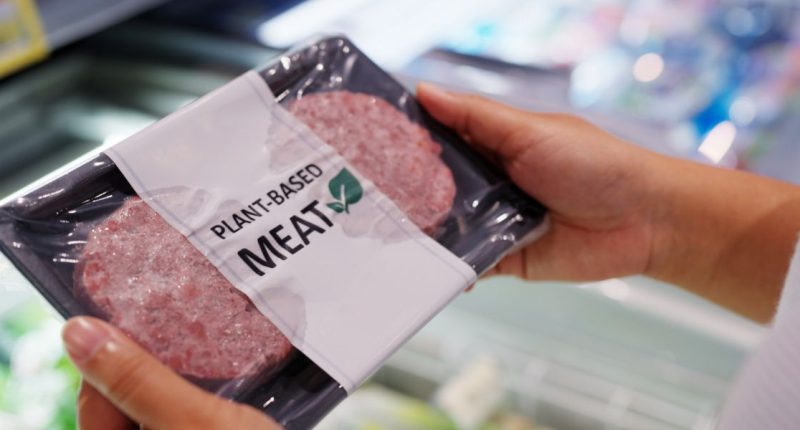Vegan mothers-to-be are five times more at risk of developing pre-eclampsia compared to those who eat meat during their pregnancy, latest evidence reveals.
New research conducted by the University of Copenhagen also found that newborn babies weighed 240g lighter if their mothers were following a plant-based diet.
Vegan lifestyles are mostly adopted by women who are slightly older, with aging mothers-to-be already at a higher risk of health problems developing during pregnancies, the study has reported.
During the trial, a team of academics assessed the health outcomes of around 66,000 pregnant women.
- Vegan diet: Algae should be added for missing vitamin B12
- Keto and paleo diets less sustainable than vegan meals, research suggests
- Could plant-based food swaps lower heart disease and type 2 diabetes risk?
Each participant was questioned about their food and supplement intake when they hit the 25-week mark.
They were then split into different groups – omnivorous (65,872), who don’t avoid any meat products, and fish and poultry consumers (666), who don’t eat red meat, as well as vegetarian (183) and vegan (18).
They found that vegan mothers had the lightest babies, while vegetarian newborns were 34g heavier than omnivores.
In addition, vegan women were pregnant for roughly 5.2 days longer than those who eat animal products, the study has reported.
Out of the 18 vegan mothers in the study, two went on to develop pre-eclampsia. Meanwhile, out of the 65,872 mothers who eat meat, 1,680 suffered from the pregnancy complication.
Pre-eclampsia is a condition that causes high blood pressure during pregnancy and after labour. If left untreated, the condition can be serious.
Data shows that roughly five per cent of pregnancies in the UK and US are affected by pre-eclampsia.
Reality star Kim Kardashian and singer Beyonce were both reportedly diagnosed with pre-eclampsia during their pregnancies.
The study results show that vegan women consume 33g less protein compared to omnivorous women.
Additionally, vitamin B12 intake was four times higher among omnivores than vegans, the research has revealed.
- Twin research shows that a plant-based diet can improve heart health in just 8 weeks
- UK-first kidney transplant given to child to remove the need of life-long drugs
- Diabetes-related nerve pain improves following faecal transplants
Vitamin B12 is mainly found in cheese, fish and meat – all products that are not suitable to consume on a plant-based diet.
“Our findings were subject to some uncertainty given the small number of vegans,” said the authors.
They added: “The sample size was still sufficient to detect meaningful differences in continuous birth outcomes.
“The lower birth weight of around 240g among vegans compared with omnivorous mothers in our study, strengthens our observation that vegans may be at higher risk of giving birth to low-birth-weight infants.”
Prior research has found that fruit, vegetables and wholegrains contain antioxidants that can help to maintain a healthy pregnancy.
Previous studies have also reported that red meats, processed foods and refined carbohydrates can increase a woman’s risk of having a miscarriage.
The results of this study are now available in the journal Acta Obstetricia Et Gynecologica Scandinavica.






